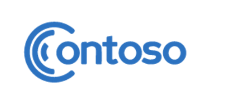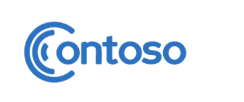Cyber Security Ethical Issues

Small business development conference
Digital Marketing and your business
Cyber Security and Ethical Issues Index i.Threats to internet privacy ii.FTC requirements for ethical uses of consumer information iii.How copyright differs from patent and trademark laws iv.What does it mean to clickwrap a license v.Significance of The Digital Millennium Copyright Act (DMCA) vi.Identify cyber security and ethical issues associated with digital marketing.
Times have changed when describing the typical hacker scenario in these days, you first must begin well before the hack or hacker with the organization behind the attack. Today, hacking is all crime, all the time, complete with bidding markets for malware, crime syndicates, botnets for hire, state actors, and cyber warfare gone amok(Grimes, R, 2018). •Cybercrime syndicates: Organized professional groups, organizing crime of business led largely affiliated conglomerate groups, in vein of legal distribution marketing hierarchies. •Small Time Cons: Small mom-and-pop operations may steal identities and passwords, or cause nefarious redirection to get credit cards, banking transactions and convert them into local currencies using money mules, electronic cash, and e-banking. •Malware Mercenaries: Teams and companies dedicated to writing malware to bypass specific security defences, and attack customers. •
Privacy is a value for most, two thirds of Americans will give up information in return for something in value. . Privacy means different things to different people. • • Privacy can be divided into the categories of Anonymity, Confidentiality, and Security. There is a variety of privacy violations. •These range from Embarrassment to Personal Loss and Theft.
Privacy, ethics, and security is a combination of user education, technological tools, and administrative policies and procedures. • Each group of individuals has a responsibility to protect users, data, and systems from a variety of threats (Grimes, R, 2018).
Watch the Video Here…
FTC REQUIREMENTS
Many companies keep sensitive personal information about customers or employees in their files or on their network. The FTC has free resources for businesses of any size.
Requirements from the FTC in regards to consumer information:
Notice
Consent
Access
Security
Enforcement
A site must present information of their policies to the users.
The user should be able to choose to participate or the user should be able to exclude them from the collection.
The site must provide the user with the access to change information and correct it if necessary.
The requirement of security. The site must inform the user policies to ensure the integrity of the data (Ethical and Legal Issues (Grade), 2013).
Copyright verses patent trademark laws
Copyright Patent And Trademark laws
A patent law is a grant of a property right to the inventor. This gives the inventor the ability to reproduce or manufacture of the goods and distinguish them from other goods.
A patent grants the inventor with the property right. It gives the inventor the ability to reproducer manufacture his or her product.
Trademark helps to prevent others from using a confusingly similar mark as a copyright.
Differences in a Patent and trademark laws
The differences between a copyright and a trademark is that a copyright protects works of authorship and a trademark protects words or phrases related to goods and services. If a slogan or a title needs protected, a trademark is necessary.
Differences in a copyright and a patent is that a patent is centred on invitations and an invention is not something that can be copyrighted.
A patent expires after twenty years, copyrights expire depending on if the work has been published or unpublished. If the work is owned and published it expires ninety-five years from date of publication or one hundred and twenty years from date of creation(Ethical and Legal Issues (Grade), 2013).
CLICKWRAP A LICENSE
A clickwrap agreement (also known as a clickthrough agreement or clickwrap license) is an online contract that confirms user consent to a company’s terms and conditions.
Examples: •When a user clicks “OK” or “I Agree” button on a webpage to create an account, download software, or complete an online transaction. • •“Type and Click”-when a user must type specific words into an on-screen box and click “Send” to consent with contractual terms.
(What is clickwrap agreement (clickthrough agreement or clickwrap license)? – Definition from WhatIs.com, 2018).
The digital millennium copyright act (dmca)
The Digital millennium copyright act (dmca)
The Digital Millennium Copyright Act (DMCA) is a United States digital rights management (DRM) law enacted October 28, 1998 by President Bill Clinton. Created to an updated version of copyright laws to deal with the special challenges of regulating digital material. The aim of DMCA is to protect the right of both copyright owners and consumers.
DMCA
DMCA is considered a compromise measure by many of these groups, whose interests frequently conflict. Strictly interpreted, DMCA would outlaw many entirely ethical, and even necessary activities.
Revisions were made to DMCA to allow specific exceptions, such as encryption and security research.
In April 2003, a group the Broadband and Internet Security Task Force produced an update to the law, referred to as “Super DMCA” which adds “the internet to defraud” to the stipulations of the original law(What is Digital Millennium Copyright Act (DMCA)? – Definition from WhatIs.com, 2018).
Cyber Security and Ethical issues in digital marketing
9 out of 10 Americans expect companies to do more than make a profit—they expect them to operate socially, responsibly, and would boycott a company that egregiously violated these expectations.
MISLEADING ADVERTISING: Regulated by The Federal Trade Commission (FTC) mandating that businesses make accurate statements in their advertising campaigns and, when possible, back their claims with scientific evidence.
BLACK-HAT LINK BUILDING: Ethical ways to build links and increase mentions of your brand; the most common is to use guest posting opportunities to write high-quality content for your target audience that cites one of your brand ‘s pieces of original research.
CONTRACTING PEOPLE WITHOUT CONSENT: Many businesses have used this tactic to contact people who they otherwise wouldn’t have known. The FTC enforce a law called the CAN-SPAM act, where you are legally allowed to email people without their consent, but, for one time only.
INSENSITIVE CONTROVERSY: Where introducing a product into a Black Lives Matter protest while their intentional attempt to get political notice backfires and venture into a world of controversy hazard.
EMOTIONAL EXPLOITATION: Making them laugh or evoking a sense of nostalgia helps consumers forge a small bond with your brand. However, when you intentionally evoke rage or sadness in a tasteless way, you could be exploiting emotions, rather than sympathizing with them(5 Common Unethical Marketing Practices: Are You Guilty?, 2018).
Grimes, R. (2018). IT’s 9 biggest security threats. CSO Online. Retrieved 12 December 2018, from: https://myeducationmanager.tradepub.com
Ethical and Legal Issues (Grade). (2013). Samantha Cassano. Retrieved 12 December 2018, from: https://myeducationmanager.tradepub.com
What is clickwrap agreement (clickthrough agreement or clickwrap license)? – Definition from: https://myeducationmanager.tradepub.com
(2018). SearchCloudSecurity. Retrieved 12 December 2018, from: https://myeducationmanager.tradepub.com
What is Digital Millennium Copyright Act (DMCA)? – Definition from WhatIs.com. (2018). WhatIs.com. Retrieved from: https://myeducationmanager.tradepub.com
5 Common Unethical Marketing Practices: Are You Guilty?. (2018). Forbes.com. Retrieved from: https://myeducationmanager.tradepub.com
![]()


